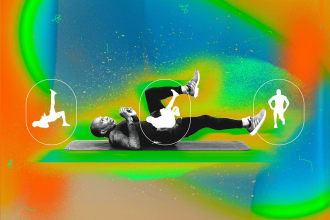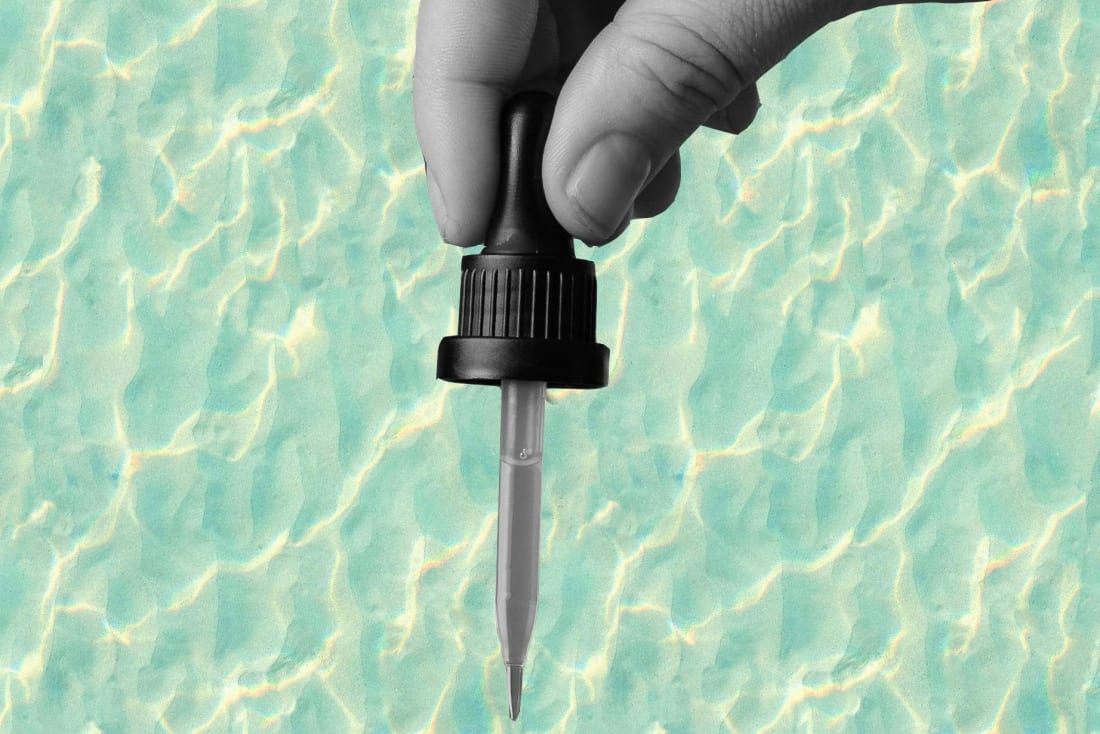How to get enough Vitamin B12, even if you're vegan
Here's why you shouldn't sleep on Vitamin B12
Here's why you shouldn't sleep on Vitamin B12
It can be difficult to know which vitamins you need to prioritise in your diet and supplement routine. Like skincare products, you could go on adding more and more until you’re taking 15 supplements a day along with a spirulina juice and superfood smoothie. Frankly, who has time for that?
But, if you’re vegetarian or vegan, it’s likely you’ll have heard of Vitamin B12. If not, it’s time to get to know – believe us. TBH, all humans need to consume Vitamin B12, plant-based or otherwise. Among other things, it helps with our brain health, energy production and does wonders for our hair, skin and nails.
Since Vitamin B12 only naturally occurs in animal proteins, it's much harder to get sufficient quantities while eating a plant-based diet. That’s not to say it’s impossible – B12 can be found in some fortified foods like cereals and plant milks – but, for the most part, veggies and vegans should prioritise supplementing Vitamin B12 over anything else.
But what exactly is Vitamin B12, and why do we need it? Let’s get into it.
Vitamin B12
Vitamin B12 benefits
Vitamin B12 has tons of benefits. As Karine Patel, a registered nutritionist specialising in vegetarian and plant-based diets explains, Vitamin B12 is an essential vitamin for our body as well as our brains.
In terms of our bodies, she tells Woo, it helps with the formation of red blood cells, in turn preventing megaloblastic anaemia, a type of blood disorder that can cause paleness, aches and pains, irritability and gut health issues, among other symptoms. It also helps to reduce the risk of macular degeneration (an eye disease that affects your vision), supports healthy pregnancy and energy production and helps maintain our hair, skin and nails. “A B12 deficiency can cause hair change, hyperpigmentation of the skin, and nail discolouration,” Patel says.
But beyond our bodies, Vitamin B12 plays a role in the production of serotonin, a chemical for regulating mood, which means it can help improve our mood and symptoms of depression. It also promotes brain health. As Patel explains: “Vitamin B12 is involved in the synthesis of myelin, a substance that forms a sheath around certain nerve fibres).” A deficiency, then, could cause the loss of neurons in the brain, which is associated with memory loss and dementia.
Essentially, Vitamin B12 isn’t something you should live without.
How much vitamin B12 should I take per day?
Okay, we get it - we need Vitamin B12. But how much do we need?
“In the UK, says Patel, “the recommended daily intake of Vitamin B12 for anyone over 15 years old is 1.5 micrograms.” This is equivalent to roughly 70g of beef, 45g of a fortified breakfast cereal or 400ml of fortified plant-based milk.
Good to know.
continue watching...
Vitamin B12 sources
As mentioned, we mostly get Vitamin B12 from animal proteins, but you can get it from fortified foods and supplements, too.
The best animal products for B12, according to Patel, are clams, liver, sardine, beef, tuna, oysters, salmon, prawn, trout, milk and dairy products and eggs. For plant-based products, you’re looking at fortified plant-based milks, nutritional yeast, tempeh, seaweed and fortified breakfast cereals like Weetabix and Cheerios.
Vegans and veggies, as well as older people and those with a malabsorption problem are more at risk of developing a deficiency, so they should really use supplements.
“There are several forms of vitamin B12, such as cyanocobalamin, adenosylcobalamin, methylcobalamin, and hydroxocobalamin,” Patel explains. “Methylcobalamin is known to be easier to absorb than synthetic types, but studies have not shown a substantial difference between the various types of vitamin B12.”
There’s also no evidence for whether liquid-based supplements or capsules work better, so, she adds, “the best supplement is the one that works best for your needs and preferences.”
Vitamin B12 deficiency
If you don’t get enough Vitamin B12 from your diet, you’re at risk of becoming deficient. But, Patel says, people who simply struggle to absorb the vitamin, eating the right foods can also become deficient. For example, she says, “it’s estimated that 10 to 30 percent of older people have difficulty absorbing vitamin B12 due to low stomach acid.”
She continues: “Vitamin B12 present in food is bound to proteins from which it separates under the action of stomach acid and enzymes. Once detached from the protein, it must bind to an intrinsic factor, a substance secreted by the lining of the stomach, to pass into the blood.”
Vitamin B12 absorption, then, is reduced if one of the two steps is slowed down or prevented. “People with pernicious anaemia (or Biermer's anaemia) do not secrete the intrinsic factor essential for the absorption of vitamin B12,” Patel adds.
Vitamin B12 deficiency results in a lack of formation of healthy red blood cells, which are small and round. “Unhealthy red blood cells become larger and oval in cases of vitamin B12 deficiency,” says Patel. This is what characterises megaloblastic anaemia. “Symptoms attributable to a deficiency can take months or even years to appear as we all have a large storage of Vitamin B12 in the body,” she adds.
The most common symptoms of a short-term Vitamin B12 deficiency include tiredness, pale or yellow skin, headaches, weakness, shortness of breath, nausea, constipation, flatulence and loss of appetite and weight loss. In the longer term, you might get tingling and numbness in the limbs, vision problems, difficulty walking, mood disorders and memory loss and dementia.
Scary right? But fear not: Vitamin B12 deficiency is treatable, and your symptoms will go away if you’re able to get enough back into your body.
continue watching...
How long does it take to recover from Vitamin B12 deficiency?
Treatment for Vitamin B12 deficiency usually depends on the causes. But, according to Patel, it can take between six and 12 months to fully recover and the most common form of treatment is with an injection of Vitamin B12, in a form called hydroxocobalamin. “These injections are every other day for two weeks, and until your symptoms start improving,” she says.
If your vitamin B12 deficiency is not caused by a lack of vitamin B12 from your diet, Patel adds, it’s likely you will need to have an injection of Vitamin B12 every 2 to 3 months for the rest of your life. However, if your diet is the source of your deficiency, you may be prescribed Vitamin B12 tablets until your levels are back to normal or you may have an injection of the vitamin twice a year.







